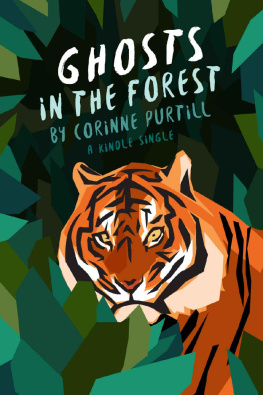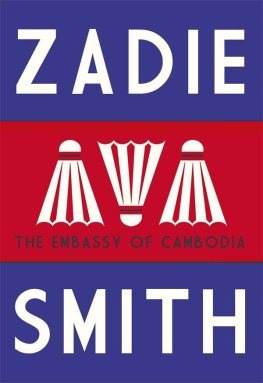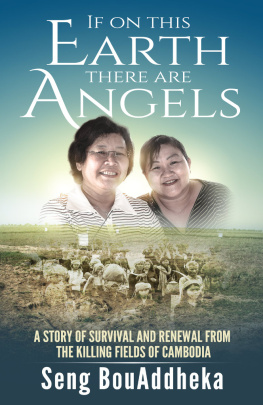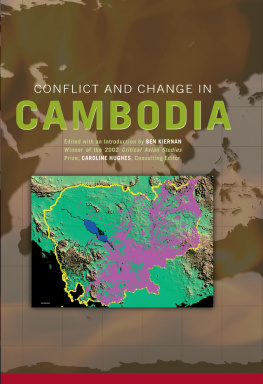Ghosts in the Forest
By Corinne Purtill
Copyright 2015 by Corinne Purtill
I.
On a day near the end of the twentieth century somewhere near the Laos-Cambodia border, a tiger stepped through the trees. Twigs snapped under her weight as she moved through damp, densely forested hills. At the smell of meat, she paused.
She had been here before, and the heft of her paws left unmistakable prints on soft earth. The tiger was hungry. Her kind had become scarcer across the vast breadth of the Indochinese peninsula, and so had the animals large enough to sate her hunger in a single kill. Large prey was nearby, and her haunches twitched in anticipation of the leap. A single, powerful bound, and her jaws would close around its throat, a body pinned beneath her muscled forelimbs. Her fangs would grip the neck until the animal suffocated, and stilled. Then she would drag it back to her den where she and her cubs would devour muscles and organs still warm with life.
Her ears flattened against her skull. The tiger stretched back onto her hindquarters, tensed like an arrow in a string, and released.
A razor-sharp bamboo arrow plunged into the soft tawny fur of her breast. The trip wire, a filament-thin vine, barely registered against her skin. With claws half-extended the tiger crashed to the ground. The movements of her rib cage became slower and shallower. An unseen pair of eyes waited in the trees for the death rattle.
Cambodia is a fist-shaped country that sits like a monkeys paw between the cupped hands of Thailand and Vietnam. In the northeasternmost corner of the country is Ratanakiri province, and in the northeasternmost corner of that is a 1,300-square-mile old-growth tropical rainforest called Virachey National Park that stretches to the borders of Laos and Vietnam. Clusters of bamboo as thick as redwood trunks erupt from the soil; tigers, gibbons and hundreds of other fauna live among its trees. The tree cover is dense enough to obscure the smoke from a cooking fire and to absorb the explosive pop! sound that bamboo makes when it burns. The soil is fertile, edible critters are plentiful and the terrain is exceptionally inaccessible. If it doesnt kill you, the forest is the perfect place to hide.
In the West, the term national park conjures marked trails and posted maps and ranger-guided hiking trips. These things exist to some degree at the relatively domesticated fringes of Virachey, but not in the parks wild heart. Park rangers conduct their surveys via airplane flyover. Its not a place one ends up by accident. The few people known to have ventured into this thick tropical rainforest include poachers, illegal loggers and other people counting on the trees to cover something up. This is where, in the latter half of 2004, a man named Moun, his wife and children, and a few other families were hiding from the world.
Their camp was small, just seven or eight little huts on bamboo stilts with roofs of woven banana leaves. When it was hot, the huts stayed cool, and when it was wetwhich was oftenthey stayed mostly dry. They wore loincloths made of tree bark and had feet worn hard as leather from years of barefoot trekking. They bathed several times each day in the river and kept their hair and nails somewhat trimmed with battered machetes. They lived in the wild, but they did not live like wild men.
When they went into hiding fifteen years earlier (Moun had counted the rainy seasons since then) they were five men and six women with just a handful of small children between them. In those days they were young, strong and healthyhungry, but strongand when they felt themselves in danger they could break camp and leave without a second thought. Now, Moun thought, looking at three generations sprawled around the fire, hastily scooping rice and bits of roasted tiger flesh into their mouths, they were as slow-moving as an elephant herd. The children had grown, married each other in unions sealed with little more than a mutual agreement and a jar of home-brewed rice wine, and had children of their own. He entered the forest a young man, and now he was a grandfather.
He could not see the passage of time in his own face. Moun had never seen a mirror, or a photograph of himself, or any other image of his likeness besides the shimmering reflection in the rivers surface before he plunged his hands through to wash. Moun was not a vain man and he did not care to look long. He saw instead the gray streaks at his friends temples, the deepening creases at the corners of his wifes eyes, and of course the mound of earth at the edge of camp where the oldest of them lay buried. They could not live like this much longer, he knew. The endof their time in hiding, of their lives, of somethingwas coming. He could feel it.
The only people on the planet he trusted lived here with him in these small houses built with their own hands. They had lost some along the way, but mostly they had grown, as they brought more babies into this refuge from the world. These children knew of no other people on earth, no sights but those of this dense arboreal kingdom. Fifteen years earlier, when Moun and his family entered this forest, they were escaping a war they had not chosen to take part in, but that had nonetheless put guns into their hands and redirected the shape of their lives. Now numbering 33 men, women and children, the group was approaching its limit. Many times hed thought about leading them out, to make contact with something beyond the woods. But the war, he would think. The soldiers. My children. Whatever privations they suffered in the campsite, it was safer, less terrifying, than the war raging outside.
Of all Moun lacked in that forest, the gravest was this knowledge: There were no more occupiers. There were no more soldiers. There was no more fighting. The war ended twenty-five years ago.
Just two months later, Moun sat on a rough-hewn bench in a village of wood and grass stilt homes, a few hundred kilometers and a lifetime away from the forest that no longer imprisoned him. He wore a once-white T-shirt stained auburn with dust and sat with his forearms resting stiffly on his thighs, as though he were still conscious of the shirts fabric against his skin. Between the first and second fingers of his left hand he held a stubby, hand-rolled cigar wrapped in a banana leaf. His dark brown eyes scanned his audience carefully, warily. Our eyes met and I smiled reflexively. He stared back, his expression unchanged in the manner of a pragmatic man who conserved his energies for when there was something to smile about.
My translator handed him a cell phone and asked if he knew what it was. Moun held up the phone, turning it carefully to examine the blue casing. He scrutinized the worn buttons, the anemic glow of its pale green screen, the unfamiliar script: N-O-K-I-A. Then he handed it back with a disinterested shrug. Ot tay, he said in Khmer, Cambodias national language. Nope.
Moun, his wife Ath and another family from their group sat now in the same village where Ath was born some forty years earlier. Along the bench were a dozen children, from toddlers to twentysomethings, who never spoke, and two women who squatted on the wooden plank nursing babies with their floral sarongs tucked between their legs. As Moun and his friend Chalat Chakov spoke, the women and children spit green phlegm into the dust. They had all become sick at the sudden exposure to dust and unfamiliar germs.
It was December 2004. Ly KamounMoun for short, pronounced a hard, fast moonwas about 40 years old. He had spent more than half his life in the forest as a prisoner, soldier or fugitive. In 1979, when he was about 15, he was kidnapped by the Khmer Rouge during the Maoist guerrillas campaign to unmake Cambodia. When troops from neighboring Vietnam invaded the country, the Khmer Rouge made him a soldier. For the ten years he lived in their army, he was told that any Vietnamese soldier given the chance would kill him, eat his liver and slaughter his children. Then he and his family and friends defected. They ran away into the woods, making themselves marked men for their former army, too.
Next page












